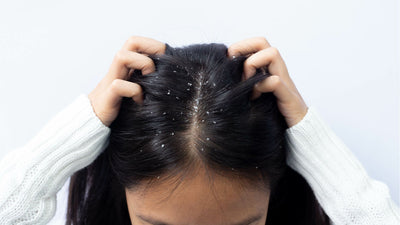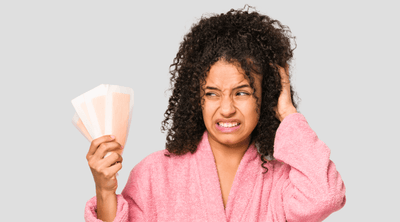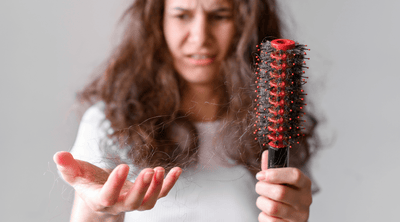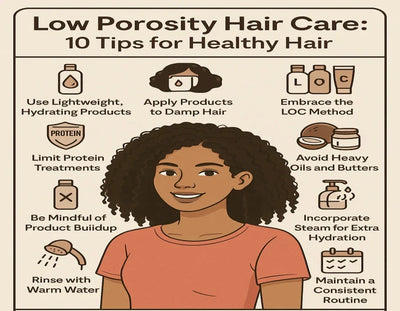What Is Transparency?
Transparency refers to open, honest, and accessible communication regarding internal processes, product ingredients, testing methods, organizational goals, and brand values.
When a brand takes ownership and discloses important information, it builds trust as an honest, transparent brand. In fact, today honesty is one of the big differentiators in the beauty and personal care industry.
Why Is Transparency Important?
Transparency should be a no-brainer for every brand. If you’re buying a product off a shelf, it’s important to find out whether the brand you’re looking at can give you answers about the ingredients formulated into its products. It’s the clean, safe way of going about such things.
Unfortunately, it’s difficult to place a finger on how transparent a brand truly is. There are several labelling norms and terms that can be used to dispel incorrect or misleading information.
Moreover, the concept of brands being ‘clean label’ hasn’t yet grown to be such an important aspect of personal care in India. The personal care industry is largely unregulated, and often, customers aren’t keen to explore ingredient lists.
For example, as long as a shampoo looks good on the shelf, smells good, lathers up luxuriously, and cleans your hair, it’s considered a great buy. The ingredients that go into making it such a superb hair cleanser are often extremely toxic. Sometimes they’re the same ingredients that go into strong household cleaning supplies or even car engines! But most of us don’t bother to get into the nitty-gritties of these details.
How Does Transparency Tie Into Clean Beauty?
Clean beauty refers to products that are non-toxic, devoid of hormone disruptors, harsh chemicals, carcinogens, and allergens. The list of harmful chemicals found in most personal care products is ever evolving, because we’re constantly discovering more about the terrible effects everyday chemicals have on our health.
Products that we use commonly almost everyday, such as face wash, shampoo, hair gel, etc., can contain toxic chemicals, often known to be carcinogens and endocrine disruptors. These are sometimes labelled in such a manner that customers are ignorant of the toxic consequences or unaware of the harsh toxicity completely.
The Ayush License is another example of how brands misuse labeling norms. The Ayush License is an ayurvedic license, used by brands to protect proprietary formulas and herbal ingredients. It allows companies to reveal only key ingredients that go into their products, and hide their base formulas. Unfortunately, companies misuse this license to hide toxic, chemical base formulas, including known carcinogens and harsh chemical ingredients.
At Arata, we believe that our customers should be aware of every single ingredient in their products. Despite having an Ayush license for three of our products, we disclose ALL our base ingredients. We believe in complete transparency and honesty when it comes to our ingredients and processes, and we disclose each and every ingredient that goes into our formulas.
How Do We Practise Transparency?

For starters, we reveal every ingredient on our product labels, as well as on our website. Clean, for us, means going all the way. We’re honest about our internal processes, our values, and our vision. We believe that our customers should only apply the safest, cleanest ingredients on their skin and hair, without any toxic repercussions.
That’s why our products contain absolutely no parabens, phthalates, PEGs, ethanolamines, chemical sunscreens, or synthetic fragrances. We use premium, globally-sourced ingredients that are extremely safe to use every single day.
Our goal is to ensure that our personal care products give our customers the absolute best experience with the use of safe, nourishing, plant-based extracts.
Toxicity Trivia:-
Did you know?
- Chemical surfactants used in shampoos are also found in car engines.
- Conventional hair gels contain plastic particles! These toxic particles harden on drying to give you the desired style and look.
- Propylene glycol, an anti-freeze agent, goes into commercial moisturizers.
- The term ‘fragrances’ is often exploited by brands to include hormone disruptors and chemical carcinogens (cancer-causing agents).
- Formaldehyde, which goes into mascara and liquid foundation, is a human carcinogen.
Let’s be mindful of the products we buy. Let’s be careful before applying these products on our hair and skin.
Conclusion
Although the idea of clean living may sound like a task, and in fact, may feel like an even bigger task because almost every product contains synthetic chemicals, we strongly encourage you to re-evaluate the chemicals you apply to your body.
When you make the switch to non-toxic products, you’ll find your body responding in positive ways over time. Clean products feel great on your hair and skin, and ween you off the chemicals your body has grown accustomed to. Moreover, chemical-free products are safer in the long run, keeping you away from toxic repercussions like hormone disruption, cancer-causing agents, and unnecessary allergies and health issues.
It’s time to let go of old patterns, especially the toxic ones, and rediscover the joy of nurturing ourselves. Let’s embrace transparency, honesty, and clean living.
Let’s revisit all-natural self-care.
Arata’s plant-powered, vegan range is thoughtfully created using nature-derived ingredients. No chemical additives, emulsifiers, dyes or preservatives. Visit our website (www.arata.in) for more.









